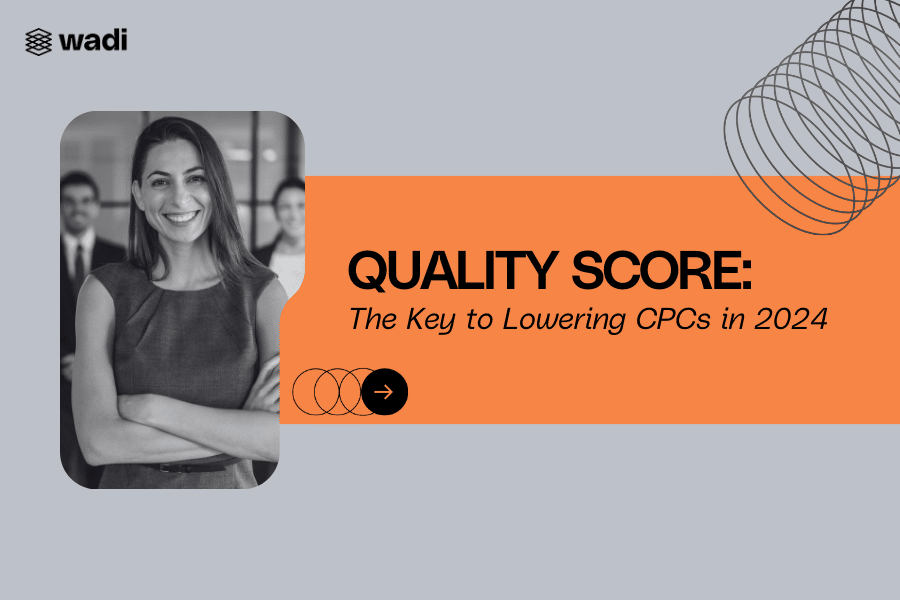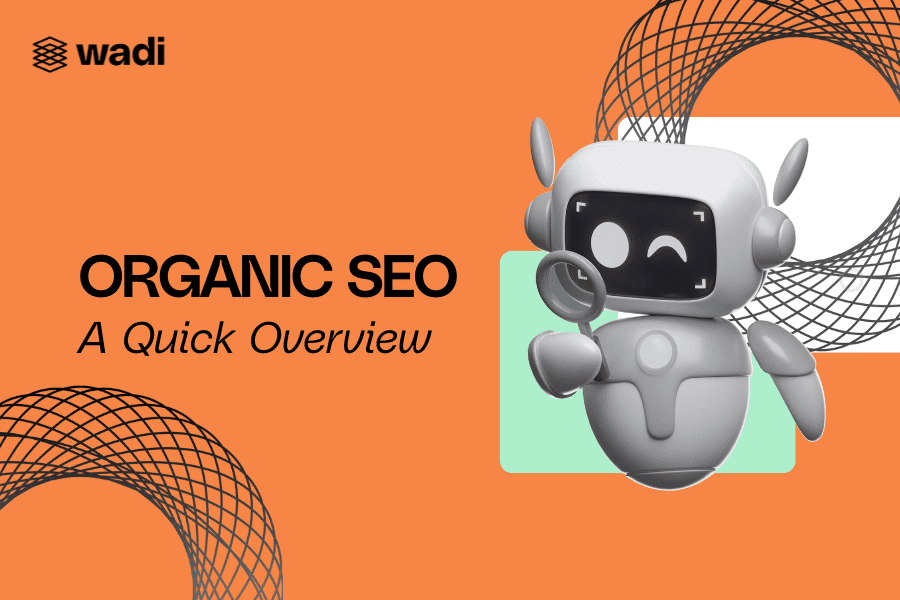Table of Contents
ToggleWhen it comes to Google and the quality Score of your ads, it isn’t just about quality—it is about leveraging the most out of your ad spend. As a business, you can have a great copywriter, great ads built around amazing keyword research, and great landing pages on your site, but if they don’t all work together, then your overall customer journey may suffer and Google will penalize you by giving you a low Ads Quality Score.
The higher your Quality Score, the higher your ads rank, the lower your costs, and the more ROI you get out of your online advertising budget.
What You’ll Learn
- How Google’s Quality Score algorithm has evolved over the years.
- The current factors influencing Quality Scores.
- Strategies to improve your Quality Scores using modern techniques and AI.
- The role of AI in optimizing Quality Scores.
- Best practices for managing costs and improving SEM performance.
- Tools and techniques for monitoring Quality Scores.
- Real-world case studies of successful Quality Score improvements.
- Expert tips and future trends in Quality Score optimization.
The Evolution of Quality Scores
Google’s Quality Score algorithm has undergone significant changes over the years. Recent updates have introduced new factors, such as mobile-friendliness, user engagement metrics, and page experience signals, which play a critical role in determining your Quality Score.
How Are Quality Scores Judged?
Google gives Quality Scores based on a scale of 1-10, with a 5 being average. In typical search engine fashion, there are dozens of factors that go into their scoring algorithms, which we in the industry aren’t privy to. However, we do know that there are many important factors that impact Quality Score, mainly:
- Keywords
- Click-Thru-Rates
- Quality of the Landing Page
Current Factors Influencing Quality Scores
Today, Quality Score is influenced by a broader range of factors than ever before. In addition to keywords, click-thru-rates, and landing page quality, Google now considers:
- Mobile Optimization: Ensuring your ads and landing pages are mobile-friendly is crucial.
- User Engagement: Metrics such as time on page, bounce rate, and interaction rates matter.
- Page Experience Signals: This includes factors like page load speed, interactivity, and visual stability.
Ensuring your ads and landing pages meet these criteria is essential for maintaining a high Quality Score.
How to Improve Quality Scores
In looking at how to best improve keywords, here is a roundup of suggestions from other experts in paid performance marketing, that WadiDigital implements for our clients’ paid media campaigns:
- Like-minded keywords should all be grouped in ad sets that are similar
- Google Ads within these ad sets should have the same main keywords
- This includes having the keywords in the ad headline, description, and in the URL
- The keywords within these groups should be heavily found within the main text of the landing page
- Have landing pages with great sales copy, that load quickly and covert
- Ensure that both the ads and the landing page are really relevant to what searchers want
Strategies to Improve Quality Scores in 2024
Keyword Strategies
- AI and Machine Learning: Utilize AI tools to refine your keyword research, ensuring you target the most relevant and high-performing terms.
- Grouping Keywords: Like-minded keywords should be grouped in ad sets that are similar. Google Ads within these sets should have the same main keywords, including in the ad headline, description, and URL.
Ad Copy Techniques
- Personalization: Incorporate personalization to make your ads more relevant to the target audience.
- Dynamic Keyword Insertion: Use dynamic keyword insertion to increase relevance and engagement.
Landing Page Best Practices
- Mobile Optimization: Ensure your landing pages are optimized for mobile devices.
- Interactive Content: Use interactive content to engage users and improve their experience.
- UX Design: Focus on user experience design to create high-converting landing pages.
Video Content
Leverage the power of video to enhance your ads and landing pages. Videos can boost engagement and improve Quality Scores by providing valuable information in an engaging format.
How Quality Scores Affect Your Costs
Most brands spend a significant portion of their budget on buying branded keywords. This is to both easily manipulate the messaging that searchers see, to make sure that searchers land on pages that are geared towards conversions, and so that they can help protect their branded keywords from competitors. Some of the larger names in the industry advocate spending at least 15% of your ad spend on branded keywords. This is important for your overall strategy and helps pull up your overall Quality Score.
As you align on a strategy that better matches your ads with your landing pages, and you create a better searcher experience, your Ads Quality Score will go up, and your cost will go down.
Monitoring Quality Scores to Improve Your SEM Performance
Watching Quality Scores isn’t just about making sure that you have a perfect 10 out of 10 for each keyword. Quality Scores are about ensuring that searchers have the best experience when they click on your ads. It is about using search engine marketing best practices to help rank your ads higher than your competitors. It is about saving on your average Cost Per Click (CPC).
When it comes to Google and the Quality Score of your ads, isn’t just about quality—it is about leveraging the most out of your ad spend. As a business, you can have a great copywriter, great ads built around amazing keyword research, and great landing pages on your site, but if they don’t all work together, then your overall customer journey may suffer and Google will penalize you by giving you a low Ads Quality Score.
The higher your Quality Score, the higher your ads rank, the lower your costs, and the more ROI you get out of your online advertising budget.
How Are Quality Scores Judged?
Google gives Quality Scores based on a scale of 1-10, with a 5 being average. In typical search engine fashion, there are dozens of factors that go into their scoring algorithms, which we in the industry aren’t privy to. However, we do know that there are many important factors that impact Quality Score, mainly:
• Keywords
• Click-Thru-Rates
• Quality of the Landing Page
How to Improve Quality Scores
In looking at how to best improve keywords, here is a roundup of suggestions from other experts in paid performance marketing, that WadiDigital implements for our clients’ paid media campaigns:
• Like-minded keywords should all be grouped in ad sets that are similar
• Ads within these ad sets should have the same main keywords
o This includes having the keywords in the ad headline, description, and in the URL
• The keywords within these groups should be heavily found within the main text of the landing page
• Have landing pages with great sales copy, that load quickly and covert
• Ensure that both the ads and the landing page are really relevant to what searchers want
How Quality Scores Affect Your Costs
Most brands spend a significant portion of their budget on buying branded keywords. This is to both easily manipulate the messaging that searchers see, to make sure that searchers land on pages that are geared towards conversions, and so that they can help protect their branded keywords from competitors. Some of the larger names in the industry advocate spending at least 15% of your ad spend on branded keywords. This is important for your overall strategy and helps pull up your overall Quality Score.
As you align on a strategy that better matches your ads with your landing pages, and you create a better searcher experience, your Ads Quality Score will go up, and your cost will go down.
Monitoring Quality Scores to Improve Your SEM Performance
Watching Quality Scores isn’t just about making sure that you have a perfect 10 out of 10 for each keyword. Quality Scores are about ensuring that searchers have the best experience when they click on your ads. It is about using search engine marketing best practices to help rank your ads higher than your competitors. It is about saving on your average Cost Per Click (CPC).
The Role of AI in Quality Score Optimization
AI tools can significantly enhance your ability to monitor and improve Quality Scores. From automated keyword research to real-time ad performance analysis, AI offers powerful capabilities to optimize your PPC campaigns. Implementing AI-driven solutions can help you stay ahead of the competition and achieve better results.
Monitoring Quality Scores to Improve Your SEM Performance
Watching Quality Scores isn’t just about making sure that you have a perfect 10 out of 10 for each keyword. Quality Scores are about ensuring that searchers have the best experience when they click on your ads. It is about using search engine marketing best practices to help rank your ads higher than your competitors. It is about saving on your average Cost Per Click (CPC).
Use the latest tools and software to track and analyze your Quality Scores. Setting up automated reports and alerts can help you stay on top of your SEM performance and make data-driven decisions for continuous improvement. Some recommended tools include Google Ads, SEMrush, and Ahrefs.
Case Studies
Expert Tips
Gain insights from industry experts on maintaining high Quality Scores:
- Continuous Optimization: Regularly update your keywords, ad copy, and landing pages based on performance data.
- A/B Testing: Continuously test different ad copies, headlines, and landing page designs to find the most effective combinations.
- Stay Updated: Keep abreast of the latest updates and trends in Google’s ad algorithms and adjust your strategies accordingly.
Future Trends
Predictive Analytics
Predictive analytics will play a larger role in optimizing Quality Scores. By anticipating trends and user behavior, you can adjust your campaigns proactively.
Enhanced AI Capabilities
As AI continues to advance, its role in Quality Score optimization will become even more significant. Future tools will offer more precise recommendations and automated adjustments.
Focus on User Experience
User experience will remain a critical factor in Quality Scores. Ensuring a seamless, engaging, and fast-loading user experience will be essential for maintaining high Quality Scores and achieving optimal ad performance.
Key Takeaways
- Evolving Algorithms: Stay informed about the latest changes in Google’s Quality Score algorithm.
- Comprehensive Strategy: Implement a holistic strategy that includes keyword optimization, personalized ad copy, and user-friendly landing pages.
- AI Integration: Utilize AI tools for enhanced keyword research, ad performance analysis, and campaign optimization.
- Cost Management: Adopt advanced bidding strategies and maintain a balance between branded and non-branded keywords.
- Continuous Monitoring: Use modern tools and techniques to monitor and adjust your Quality Scores regularly.
- Expert Insights: Follow industry experts’ advice and best practices to maintain high Quality Scores.
- Future Preparedness: Stay ahead of trends by incorporating predictive analytics and focusing on user experience.
By incorporating these updates and strategies, your campaigns can stay ahead of the competition and achieve better results in 2024 and beyond.






